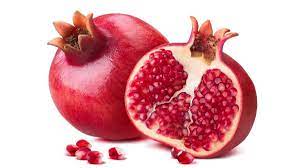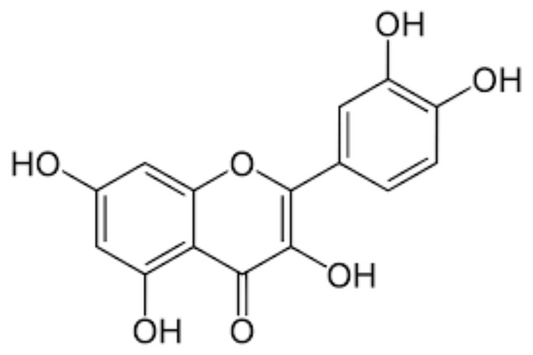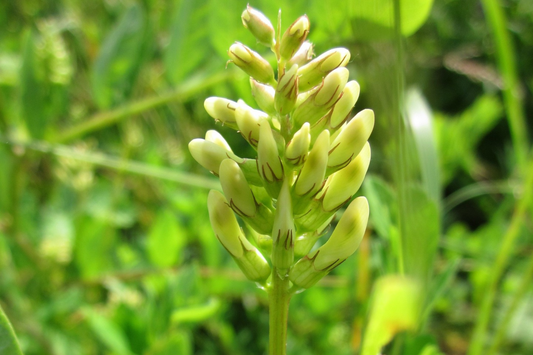Research Consensus: Traditionally used for centuries, and modern studies confirm its multiple benefits, especially concerning stress and anxiety relief.
Benefit Tips
Ashwagandha, also known as Withania somnifera, is an adaptogenic herb that has been used for thousands of years in Ayurvedic medicine. It's known for its potential to combat stress, improve vitality, and enhance overall well-being.
- A study showed that participants had a 72% reduction in anxiety scores after two months of ashwagandha supplementation.
- Stress and Anxiety Reduction: Several studies have shown that ashwagandha may effectively reduce symptoms in people with stress and anxiety disorders. One study found that participants who took ashwagandha had a reduction in scores on the stress-assessment scale by 44%, compared to a 5.5% reduction in the placebo group.
- Cognitive and Memory Enhancement: Ashwagandha might have neuroprotective effects. In one controlled study, healthy men who took ashwagandha capsules reported a 76% increase in task performance and a 57% increase in attention compared to those on a placebo.
- Improve Sleep Quality: Given its calming properties, ashwagandha has been shown to improve sleep. In a study, participants taking ashwagandha root extract experienced improved sleep quality and had a 72% increase in sleep duration compared to the placebo group.
- Increased Muscle Mass and Strength: Some studies suggest that ashwagandha might improve body composition and increase muscle strength. Participants in a resistance training program showed a significantly greater increase in muscle strength and size when supplementing with ashwagandha compared to placebo.
- Reduced Blood Sugar Levels: Ashwagandha might help reduce blood sugar levels. In several studies, participants experienced an average reduction of 12% in fasting blood sugar levels when taking ashwagandha compared to placebo.
- Anti-Inflammatory Effects: The herb can reduce certain inflammation markers. One study found a 36% reduction in CRP (a marker of inflammation) in participants taking ashwagandha compared to a smaller reduction in the placebo group.
- Enhanced Fertility and Testosterone: In men, ashwagandha may boost testosterone levels and improve fertility. A study reported a 167% increase in sperm count and a 53% increase in testosterone levels in infertile men after ashwagandha supplementation.
- Antioxidant Properties: Ashwagandha promotes antioxidant activity, which can protect against oxidative stress. Studies have shown increases in antioxidant enzymes in the body after ashwagandha supplementation.
- Reduced Cortisol Levels: Cortisol is a stress hormone, and high levels are indicative of chronic stress or other health conditions. In one study, participants had a 28% reduction in cortisol levels after taking ashwagandha.
Ashwagandha: The Natural Anti-Aging Solution You've Been Searching For
Ashwagandha, also known as Withania somnifera, is a popular herb that has been used in traditional Indian Ayurvedic medicine for thousands of years to ease pain and inflammation. In recent years, it has gained significant attention in the scientific community for its potential anti-aging effects.
Ashwagandha is classified as an adaptogen, a natural substance that helps the body adapt to stress and maintain balance. It is believed to work by regulating the body's stress response and reducing the levels of stress hormones like cortisol.1
One of the most well-known benefits of ashwagandha is its ability to reduce stress and anxiety. Chronic stress can have a significant impact on overall health and may contribute to accelerated aging. By reducing stress levels, ashwagandha may help to slow down the aging process. In a study published in the Indian Journal of Psychological Medicine, researchers looked at whether taking a natural supplement made from the Ashwagandha plant can help reduce stress and anxiety and improve well-being. They recruited 64 people who had a history of chronic stress and asked them to take either the supplement or a placebo twice a day for 60 days. They checked in with them three times during the treatment period to make sure they were taking the supplement and to see if they had any side effects. At the end of the 60 days, they found that the group taking the supplement had significantly lower stress levels compared to the placebo group. They also found that the levels of cortisol, a hormone that is released when people are stressed, were lower in the supplement group. The supplement did not cause any serious side effects, and the researchers concluded that taking the Ashwagandha supplement can safely and effectively improve a person's ability to deal with stress and improve their quality of life.1
In addition to reducing stress, ashwagandha has been shown to have a number of other potential anti-aging effects. One study published in the Journal Annals of Neurosciences found that ashwagandha extract increased the lifespan of worms by up to 20%.2
Ashwagandha has also been found to have anti-inflammatory properties. Chronic inflammation is a common feature of aging and is associated with a range of age-related diseases. By reducing inflammation, ashwagandha may help to slow down the aging process and reduce the risk of age-related diseases.3,4
In addition to its potential anti-aging effects, ashwagandha has been studied for its ability to improve a range of other health conditions. For example, several studies have shown that ashwagandha improved symptoms of arthritis, including pain and joint stiffness.5,6
Ashwagandha has also been found to improve exercise performance.7,8 For example, a study aimed to review and analyse existing clinical trials to evaluate the effect of Ashwagandha supplementation on physical performance in healthy individuals. The researchers conducted a systematic review, which is a type of study that uses a rigorous and transparent method to identify and analyse all available evidence on a particular research question. Three large databases (PubMed, ScienceDirect, and Google Scholar) were searched to find relevant studies. The effect of Ashwagandha supplementation on different variables related to physical performance, such as strength, power, cardiorespiratory fitness, and fatigue/recovery, was analysed. The study included 13 clinical trials that met the eligibility criteria, but only 12 of them were included in the final quantitative analysis. The researchers found that Ashwagandha supplementation was more effective than a placebo in improving physical performance in healthy men and women.7
Several studies have also suggested that ashwagandha may have anti-cancer properties.9-11 One study published in the journal PLOS One found that ashwagandha extract inhibited the growth of several types of cancer cells in vitro.10
In conclusion, ashwagandha is an adaptogenic herb that has been used for thousands of years in traditional Indian Ayurvedic medicine. It has a range of potential health benefits, including reducing stress and anxiety, improving exercise performance, and potentially slowing down the aging process. While more research is needed, ashwagandha is a promising natural supplement that may offer a range of anti-aging benefits.
References:
- Chandrasekhar K, Kapoor J, Anishetty S. A prospective, randomized double-blind, placebo-controlled study of safety and efficacy of a high-concentration full-spectrum extract of ashwagandha root in reducing stress and anxiety in adults. Indian journal of psychological medicine. 2012 Jul;34(3):255-62.
- Kumar R, Gupta K, Saharia K, Pradhan D, Subramaniam JR. Withania somnifera root extract extends lifespan of Caenorhabditis elegans. Annals of neurosciences. 2013 Jan;20(1):13.
- Giri KR. Comparative study of anti-inflammatory activity of Withania somnifera (Ashwagandha) with hydrocortisone in experimental animals (Albino rats). J Med Plants Studies. 2016;4:78-83.
- Chandra S, Chatterjee P, Dey P, Bhattacharya S. Evaluation of anti-inflammatory effect of ashwagandha: a preliminary study in vitro. Pharmacognosy Journal. 2012 May 1;4(29):47-9.
- Kumar G, Srivastava A, Sharma SK, Rao TD, Gupta YK. Efficacy & safety evaluation of Ayurvedic treatment (Ashwagandha powder & Sidh Makardhwaj) in rheumatoid arthritis patients: a pilot prospective study. The Indian journal of medical research. 2015 Jan;141(1):100.
- Kanjilal S, Gupta AK, Patnaik RS, Dey A. Analysis of clinical trial registry of India for evidence of anti-arthritic properties of Withania somnifera (ashwagandha). Alternative Therapies in Health and Medicine. 2021 Nov 1;27(6):58-66.
- Bonilla DA, Moreno Y, Gho C, Petro JL, Odriozola-Martínez A, Kreider RB. Effects of Ashwagandha (Withania somnifera) on physical performance: Systematic review and bayesian meta-analysis. Journal of Functional Morphology and Kinesiology. 2021 Feb 11;6(1):20.
- Shenoy S, Chaskar U, Sandhu JS, Paadhi MM. Effects of eight-week supplementation of Ashwagandha on cardiorespiratory endurance in elite Indian cyclists. Journal of Ayurveda and integrative medicine. 2012 Oct;3(4):209.
- Widodo N, Takagi Y, Shrestha BG, Ishii T, Kaul SC, Wadhwa R. Selective killing of cancer cells by leaf extract of Ashwagandha: Components, activity and pathway analyses. Cancer letters. 2008 Apr 8;262(1):37-47.
- Widodo N, Priyandoko D, Shah N, Wadhwa R, Kaul SC. Selective killing of cancer cells by Ashwagandha leaf extract and its component Withanone involves ROS signaling. PloS one. 2010 Oct 21;5(10):e13536.
- Widodo N, Kaur K, Shrestha BG, Takagi Y, Ishii T, Wadhwa R, Kaul SC. Selective killing of cancer cells by leaf extract of Ashwagandha: identification of a tumor-inhibitory factor and the first molecular insights to its effect. Clinical Cancer Research. 2007 Apr 1;13(7):2298-306.




